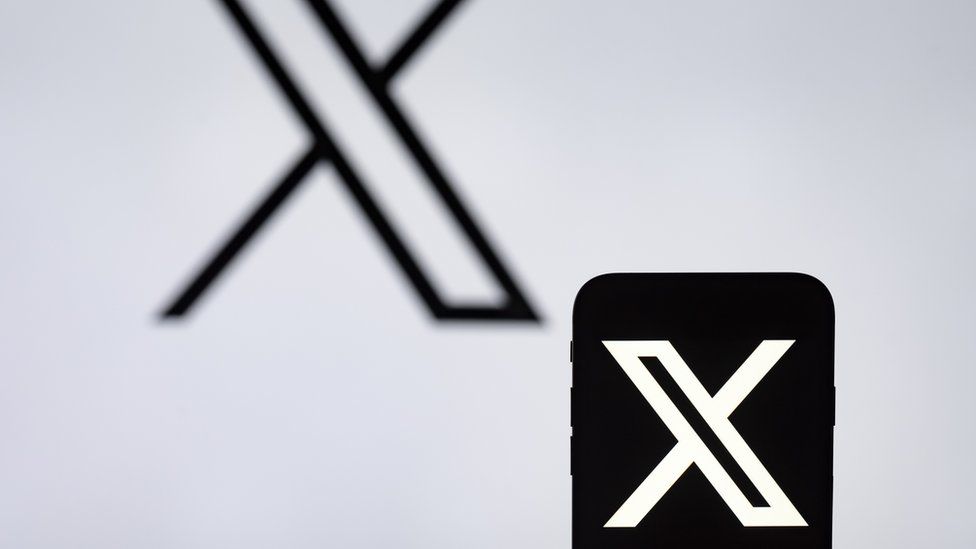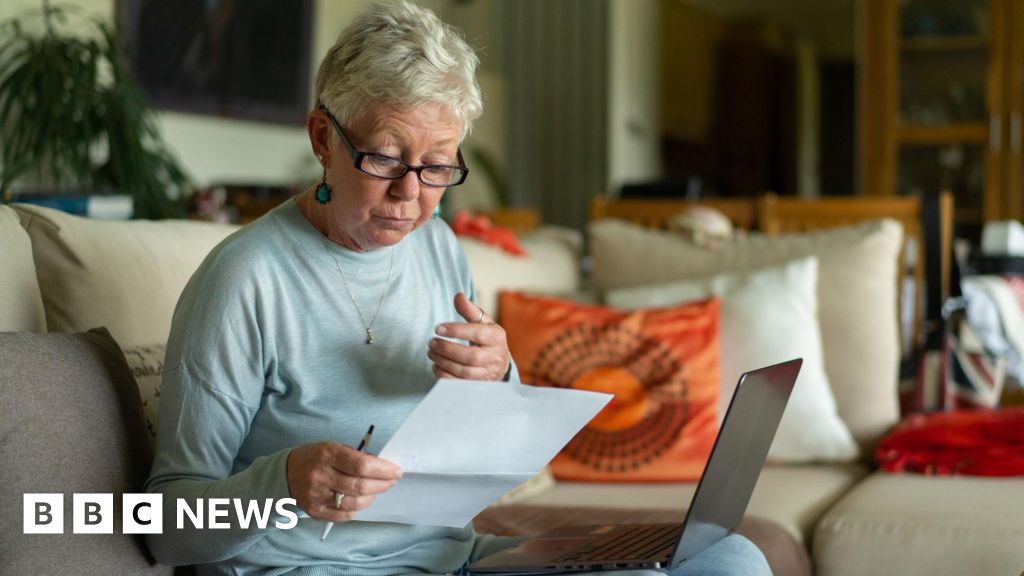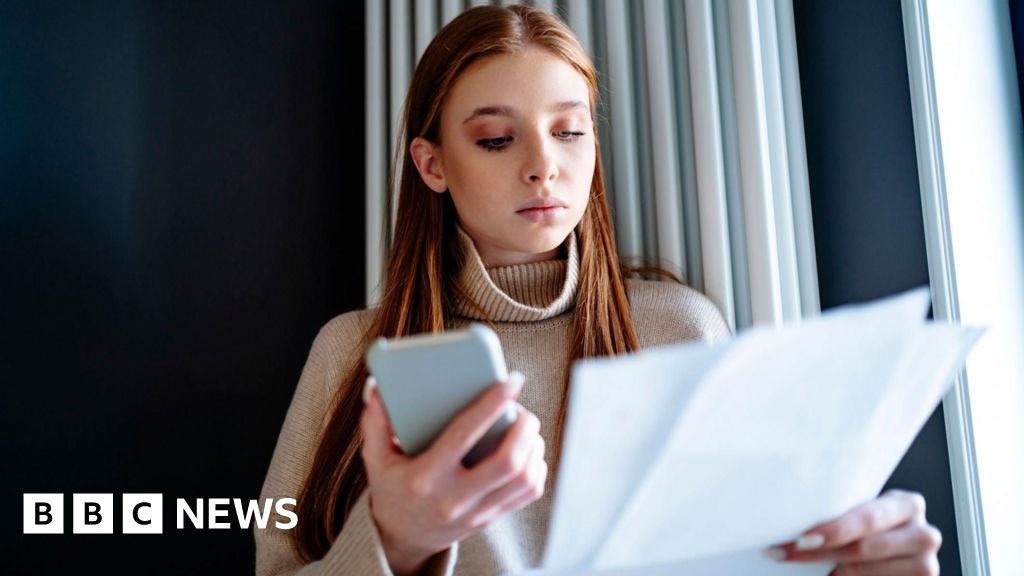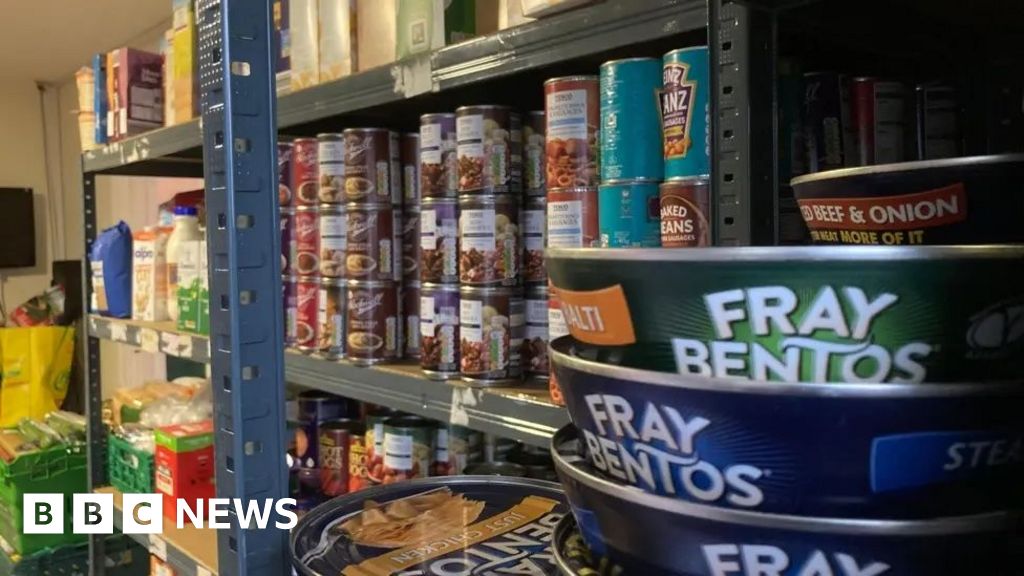ARTICLE AD BOX
 Image source, Getty Images
Image source, Getty Images
By Faarea Masud & Natalie Sherman
Business reporters
Elon Musk's X, formerly Twitter, granted subscription perks to designated terrorist groups and others barred from operating in the US, according to campaigners.
The Tech Transparency Project (TTP) found X had granted blue check marks to accounts tied to Hezbollah members, among others.
For $8 (£6.40) a month, a tick allows longer posts and better promotion.
X removed some ticks after the report, saying its security was "robust".
Mr Musk's decision to charge for check marks was one of the most controversial changes he made after he bought Twitter in 2022, with critics saying the move would make issues of disinformation worse, opening the platform to impersonators.
The badge was previously free, meant to indicate that the social media platform had verified the identity behind the account.
Many of the recipients were journalists, as well as world leaders and celebrities.
In some cases, those included people facing sanctions in the US, which opened the company to criticism that it was giving a platform to the wrong people and accusations that it was breaking US sanctions law.
Now that the system is paid, however, "X may be raising new legal issues," the Tech Transparency Project said.
It said X had removed the ticks from the accounts it had identified after its report was published.
The TTP said an account run by Ansar Allah, known as the Houthis, had also seemingly paid for its blue check mark. The check mark has now been removed. The account has over 23,000 followers. The Houthis are sanctioned in both the US and UK. The UK government says on its website that it has sanctioned the Houthis "to disrupt their ability to attack international shipping in the Red Sea, and to promote Yemen's peace, stability and security".
The US Treasury, which outlines organisations the US will not trade with, did not immediately respond to a request for comment from the BBC.
"The U.S. imposes sanctions on individuals, groups, and countries deemed to be a threat to national security. Elon Musk's X appears to be selling premium service to some of them", the TPP wrote in its report.
"A blue checkmark account that bears the name and profile image of Hassan Nasrallah, the secretary-general of Hezbollah, also indicates it is 'ID verified', a service that X offers to premium subscribers as a way to prevent impersonation. X requires users to submit a government-issued ID and a selfie to get verified in this way, though it is unclear if Nasrallah did so", it added.
Posting on X, the firm's team in charge of safety wrote that its subscription process was "adhering to legal obligations", and was independently screened by X's payment providers.
"Several of the accounts listed in the Tech Transparency Report are not directly named on sanction lists, while some others may have visible account check marks without receiving any services that would be subject to sanctions", X wrote, adding that the firm would "take action if necessary" after reviewing TPP's report.
The TPP responded to the post saying even though some of the organisations were not named on the US sanctions list, they wereowned by entities that are under US sanctions.
The director of the TPP Katie Paul told the New York Times that it was a sign that X had "lost control of its platform".
The owner of X, Elon Musk - who is also the chief executive of Tesla and one of the world's richest people - has previously said that he wants the social media platform to be like a "town square", advocating the right to free speech, while also removing illegal content.
But some decisions following Mr Musk's takeover of X have been controversial, including the reinstatement of rapper Kanye West's account in 2023 after an almost eight-month ban over offensive posts including antisemitic comments.
The TPP identified other accounts that had seemingly paid-for subscription accounts, including one belonging to NTV, a state-controlled television channel in Russia. The US made trade with Russia illegal after its invasion of Ukraine.

 1 year ago
55
1 year ago
55








 English (US) ·
English (US) ·